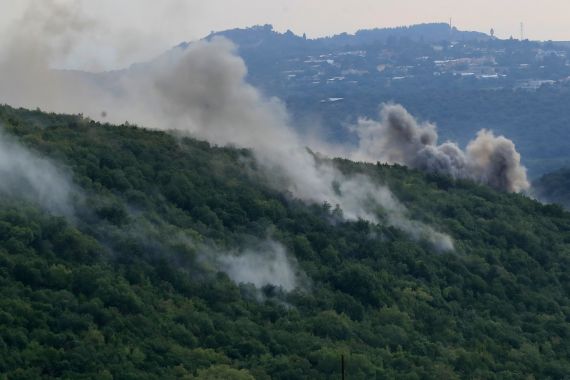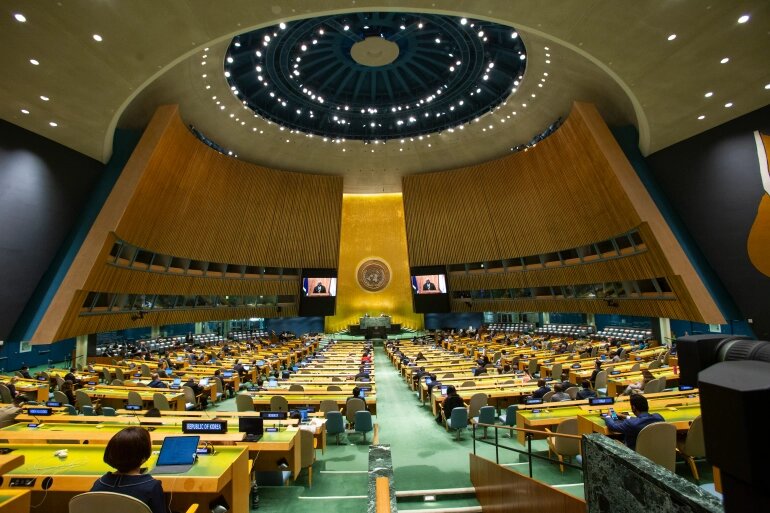Lebanon, a nation no stranger to the ravages of conflict, is once again teetering on the precipice of war as tensions with Israel escalate. In the wake of a recent exchange of rockets and retaliatory strikes, fears of a potentially devastating conflict loom large over this tiny Levant country, already grappling with a historic economic meltdown. The volatile situation has claimed the lives of at least three Hezbollah members, an Israeli senior officer, and two Palestinian fighters. As Lebanon stares into an uncertain future, its people are divided in their apprehension, underscoring the multifaceted challenges that lie ahead.
Cross-Border Escalation Claims Lives on Both Sides
On Monday, a salvo of Israeli shelling claimed the lives of three members of Hezbollah, a prominent Lebanese Shia group, in what marked a significant escalation in hostilities. Israel’s retaliatory response came swiftly, resulting in the death of an Israeli deputy commander and two Palestinian fighters in southern Lebanon. This surge in violence has forced hundreds of Lebanese residents to hunker down in their homes or flee towards the southern suburbs of Beirut, seeking refuge from the escalating turmoil.
A Familiar Fear of Conflict in Lebanon
Lebanon’s history is marked by a series of conflicts and turbulent episodes, and its citizens have borne witness to numerous wars. As Ahmed Ali, a 55-year-old Lebanese resident, aptly noted, “We are used to it.” In just one lifetime, Lebanon has weathered a devastating civil war, confrontations with Israel, internal factional strife, and the repercussions of neighboring Syria’s ongoing war. Nevertheless, the recent operation launched by Hamas against Israel has ignited fresh concerns among Lebanon’s population.
Hezbollah’s previous standoff with Israel in 2006, triggered by the capture of two Israeli soldiers, ended in a 34-day war, leaving a devastating toll of about 1,100 Lebanese and 165 Israelis dead. Despite the stalemate, Hezbollah gained a reputation boost across the Arab world for withstanding a full-throttle Israeli assault. However, the prospect of another all-out war is now met with skepticism, given Lebanon’s ongoing economic crisis, with roughly 80% of its population living below the poverty line.
In the aftermath of the 2006 war, several Gulf states provided substantial financial aid to rebuild Lebanon’s ravaged infrastructure. Saudi Arabia, for instance, pledged $500 million in aid and deposited $1 billion into Lebanon’s central bank. Yet, with these Gulf countries having reduced their support to Lebanon in recent years, partly due to their concerns about Hezbollah’s links to Iran, many Lebanese now grapple with the sobering question of whether they can count on similar levels of assistance in the future.
Economic Woes Overshadow War Fears
Amid the mounting fear of conflict, not all Lebanese citizens share the same concerns. Frustration with Lebanon’s economic woes has left some to believe that things cannot deteriorate further. The World Bank, in 2021, classified Lebanon’s economic crisis as one of the most severe since the 19th century. The International Monetary Fund, in June of the previous year, attributed this crisis to the resistance of Lebanon’s political class in implementing essential economic reforms.
The Lebanese pound has suffered a staggering devaluation of approximately 98% since 2019, and the country’s GDP has shrunk by 40%. As a result, for many, the pressing issue is not the specter of war but rather the daily struggle for survival. As Mohamad Aziz put it bluntly, “Who cares about a war? We can’t afford to live, to eat food or to drink [water].” In a nation gripped by economic turmoil, the specter of war is just one among the multitude of crises that the Lebanese population must grapple with in their daily lives.
















